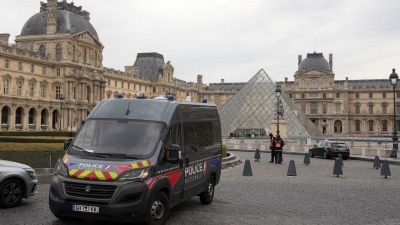Dalit leader and president of the Vanchit Bahujan Aghadi (VBA) Prakash Ambedkar deposed as a witness before the Koregaon Bhima Commission of Inquiry on Wednesday.
A two-member commission, headed by retired high court judge J N Patel, is probing the cause of the violence that broke out in Koregaon Bhima on January 1, 2018, in which one person died and several others were injured.

His examination was recorded by the commission’s lawyer Aashish Satpute. He was cross examined by senior lawyer S K Jain and advocate Rohan Jamadar.
Story continues below this ad
In his affidavit filed before the commission on July 24, Ambedkar had sought an inquiry into the alleged intelligence failure regarding the Koregaon Bhima violence. He blamed Hindutva leaders Sambhaji Bhide, Milind Ekbote and “their supporters in the government” for allegedly playing a key role in the violence.
He also sought an inquiry of sarpanches, gram sevaks and other office bearers of the villages who allegedly opposed the programme at Jaystambh on January 1, 2018.
Replying to questions asked by Ekbote’s lawyer S K Jain on Wednesday, Ambedkar said he visited Koregaon Bhima area after violence broke out on January 1, 2018 and had called the superintendent and the deputy superintendent of Pune rural police over phone but they were not reachable.
Ambedkar said he did not communicate his views and analysis (about violence) in writing to any officials, but had submitted “documentary evidence with chats” to then Chief Minister Devendra Fadnavis in a personal meeting, seeking a probe on whether the “riots were pre-planned.” In his affidavit, Ambedkar has stated Commission should also call Fadnavis to depose as a witness.
Story continues below this ad
Advocate Jain claimed Ambedkar filed his affidavit to get “political mileage” in the coming elections. Ambedkar refuted the allegations.
Advocate Rohan Jamadar questioned Ambedkar on some of the historical documents related to the battle of Koregaon Bhima. Advocate Jamadar is a descendant of a British soldier Kandojibin Gajoji Jamadar, who was injured in the battle of Koregaon Bhima against the Peshwas on January 1, 1818.
The British had appointed Kandojibin as ‘in-charge’ of the ‘Jaystambh’, a war memorial erected in 1821 in the memory of its soldiers who fought this battle.
According to the Jamadar family which belongs to the Maratha community, both British and Peshwa forces comprised soldiers of different castes. And thus, they claimed , the battle of Koregaon Bhima cannot be linked to any particular caste or religion, and that it was not a war against casteism.
Story continues below this ad
But during cross examination, Ambedkar claimed that “Mahars (a Dalit community), disbanded Alutedars and Balutedars” joined hands with the British and defeated Peshwas in the battle of Koregaon Bhima. He claimed that the coming together of Mahars, Alutedars and Balutedars was against the social oppression and extreme form of untouchability prevalent in the Peshwas regime hence, January 1 is celebrated as a “day of social liberation.”
Jamadar said there was no evidence to support Ambedkar’s claim. To which, Ambedkar replied, “it is not correct.” Ambedkar’s cross examination would continue during the next hearing on September 16.
Meanwhile, in his affidavit, Ambedkar sought an inquiry on why the Pune city police blamed Elgaar Parishad for Koregaon Bhima violence. Ambedkar had presided over the Elgaar Parishad, a conclave held in Pune on December 31, 2017.
According to Pune City Police’s probe, Elgaar Parishad was allegedly organised on the instructions of the banned outfit CPI (M) and such speeches were delivered at the conclave and campaigns held for the event that it sparked violence on January 1, where lakhs of people, mostly Ambedkarites, had gathered to commemorate the 200th anniversary of the battle of Koregaon Bhima. The National Investigation Agency (NIA) later took over the probe of the case.









